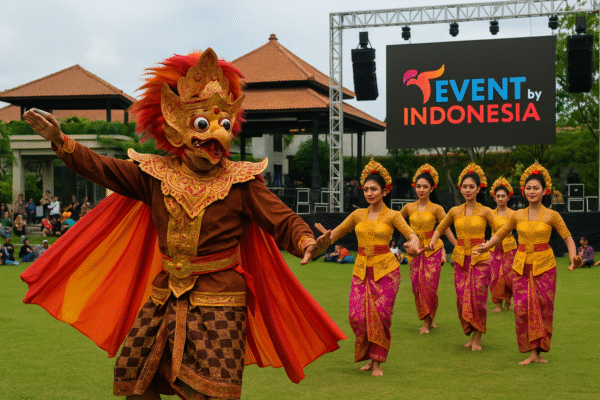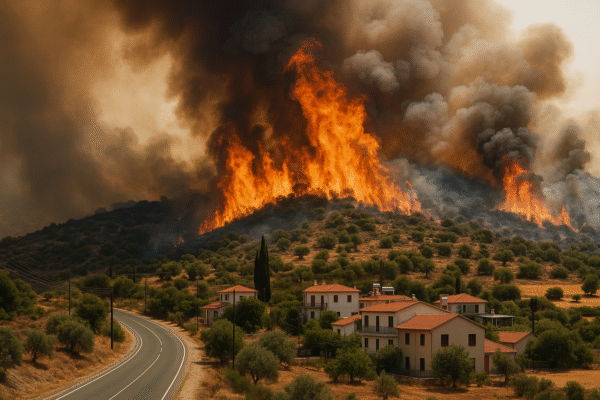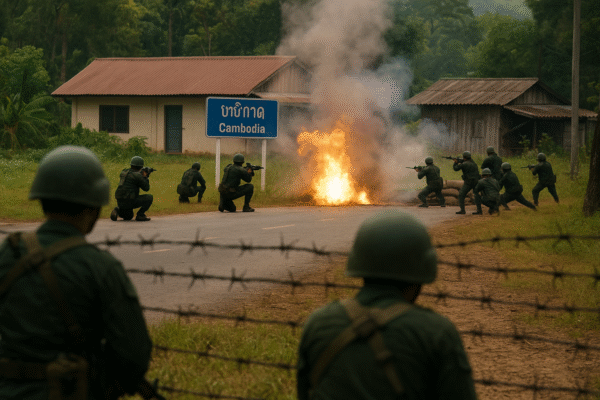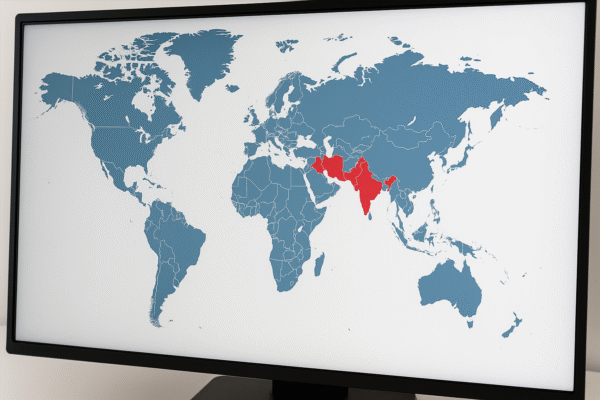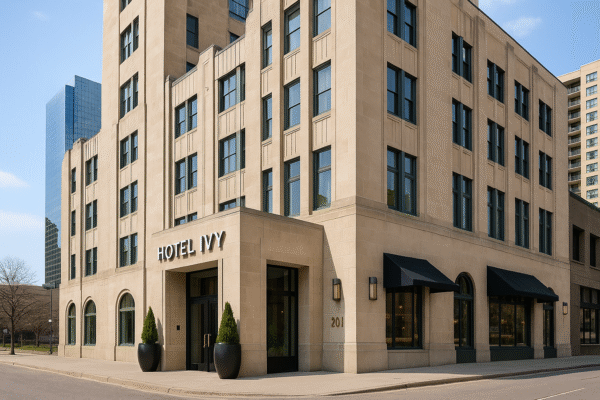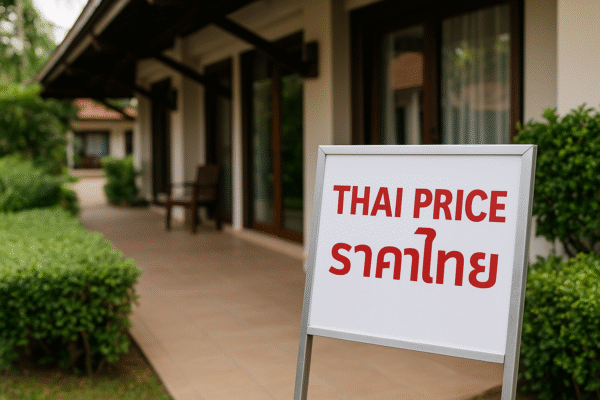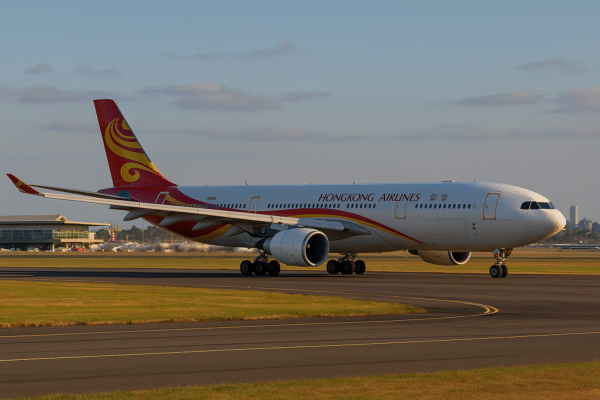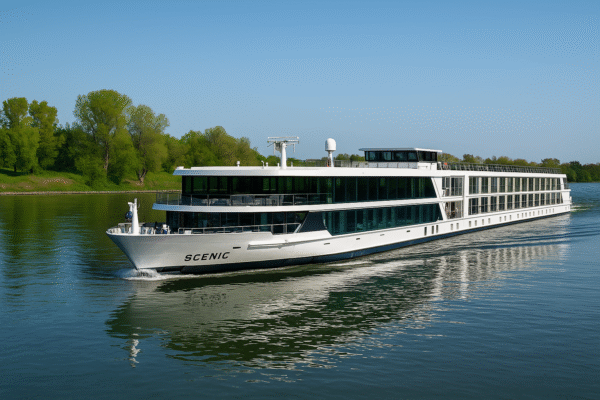Violent clashes along the Thailand-Cambodia border have prompted the United Kingdom’s Foreign, Commonwealth & Development Office (FCDO) to issue an updated travel advisory, urging tourists to exercise caution when visiting border areas between the two Southeast Asian nations. Though popular destinations such as Bangkok, Angkor Wat, and Phuket remain unaffected, heightened military tensions have created concern among international travelers.
Rising Tensions and Border Conflict Background
The recent outbreak of violence, which began on Thursday, July 24, 2025, has reignited longstanding disputes over ancient temple sites near the border. The conflict centers around Prasat Ta Moan Thom and Prasat Ta Krabey, two ancient temples claimed by both nations and located between Thailand’s Surin and Ubon Ratchathani provinces and Cambodia’s Oddar Meanchey and Preah Vihear regions.
Local Thai media have reported the deaths of at least nine Thai civilians, with 14 more injured in the crossfire. Cambodia’s government has yet to confirm official casualty numbers. Nearly 40,000 people have been evacuated from nearby villages in Thailand. Thai military sources confirmed that fighter jets struck Cambodian military targets after Cambodian troops allegedly opened fire first—claims strongly contested by Cambodian Prime Minister Hun Manet, who accused Thai forces of launching the initial assault.
Border Crossings Temporarily Closed
As tensions intensified, Thailand swiftly shut down all official border crossings along its 817-kilometer frontier with Cambodia. This unprecedented move has caused disruption for travelers attempting overland crossings for tourism or business purposes.
Popular overland routes used by backpackers and tour groups—such as the Aranyaprathet-Poipet crossing, commonly used to reach Siem Reap from Bangkok—have been sealed off. Cambodian authorities also issued statements urging citizens to avoid travel in contested zones until further notice.
UK FCDO Issues Updated Travel Advisory
In response, the UK FCDO revised its official travel guidance for both countries. While no blanket ban has been placed on travel to Thailand or Cambodia, British citizens are strongly advised to avoid areas within close proximity to the disputed border, especially around the Preah Vihear, Ta Krabey, Ta Muen Thom, and Ta Kwai temple complexes.
The advisory also underscores the risk of landmines in these border areas. Tourists are warned to remain on clearly marked paths and to follow all local security instructions, particularly when visiting rural temple zones or historical ruins located near border lines.
The FCDO continues to advise against all but essential travel to parts of southern Thailand, including Pattani, Yala, Narathiwat, and portions of Songkhla province, citing unrelated insurgent activity.
Are Tourist Hotspots Affected?
Fortunately, Thailand and Cambodia’s primary tourist destinations remain safe and fully operational. International travelers heading to Bangkok, Chiang Mai, Koh Samui, Krabi, Phuket, Angkor Wat, or Phnom Penh are not affected by the border clashes.
Air travel between the two countries continues uninterrupted, and major hotel operations, attractions, and guided tours are functioning normally. Nevertheless, those with multi-country travel plans involving overland routes are encouraged to reassess their itineraries.
Tourism and Business Impact
Travel and logistics companies operating along the Thai-Cambodian border report significant disruptions. Tourists with planned overland excursions are urged to contact their travel providers for updates, alternative routes, or cancellations. Business travelers operating in regional trade zones along the border may also experience delays due to heightened security measures.
Travel Safety Tips for Tourists
To ensure a safe journey in the region, tourists should follow these critical safety steps:
- Monitor Official Travel Advisories: Regularly check the UK FCDO website or local embassy updates for real-time information.
- Recheck Travel Insurance: Ensure policies remain valid; however, note that most do not cover cancellations unless travel is officially advised against.
- Contact Travel Providers: Tour operators and airlines can help revise itineraries affected by border closures.
- Avoid Border Areas: Focus your itinerary on destinations well within the interior of each country.
- Stay Informed Locally: Follow local news and pay close attention to guidance from authorities or hotel staff.
Can You Cancel or Get Refunds?
As the FCDO has not declared an outright warning against travel to Thailand or Cambodia, most tour companies and airlines are not obligated to offer refunds for changes in plans. However, flexible bookings and travel insurance policies that include coverage for civil unrest may allow for partial reimbursement or trip postponement.
Travelers are encouraged to speak directly with providers to explore rescheduling or alternative destinations.
A Cautious Yet Hopeful Outlook
Despite the flare-up, both Thai and Cambodian officials have expressed openness to de-escalation. ASEAN diplomatic observers are closely monitoring the situation and may step in to facilitate negotiations. Meanwhile, tourists are reminded that most of Southeast Asia remains calm, safe, and welcoming.
By staying informed and cautious, travelers can continue to explore the vibrant cultures, rich histories, and natural beauty that Thailand and Cambodia offer. With awareness and flexibility, Southeast Asia remains a rewarding destination for responsible and safety-conscious travelers.
For more travel news like this, keep reading Global Travel Wire

